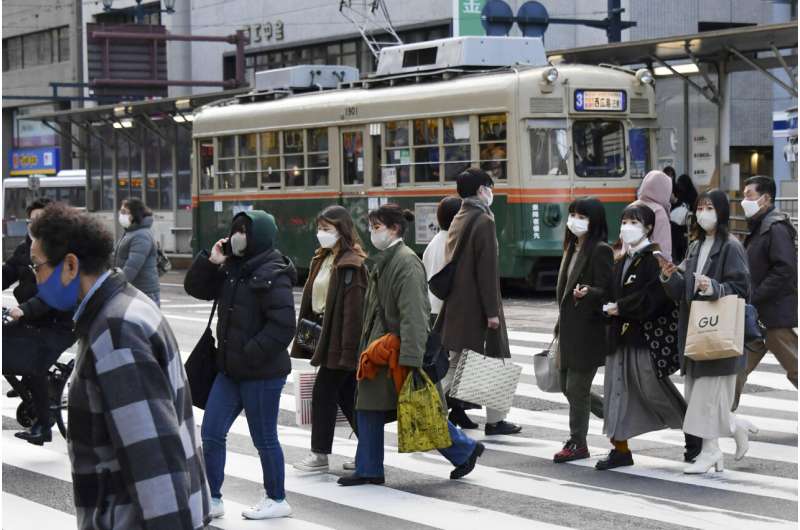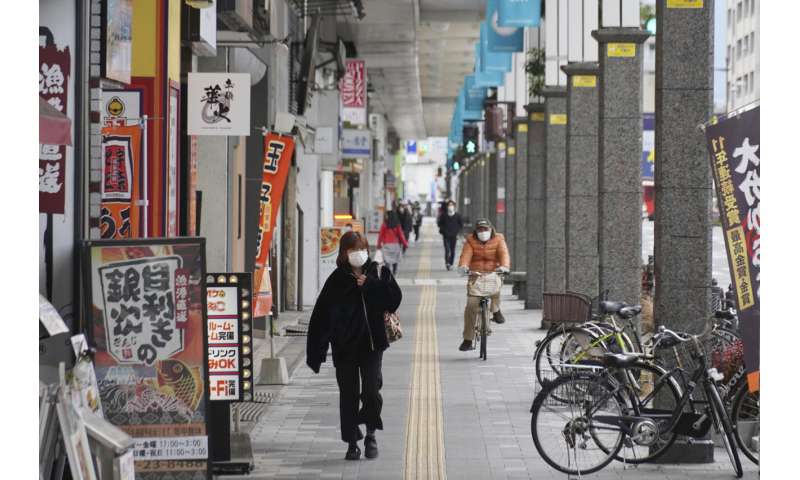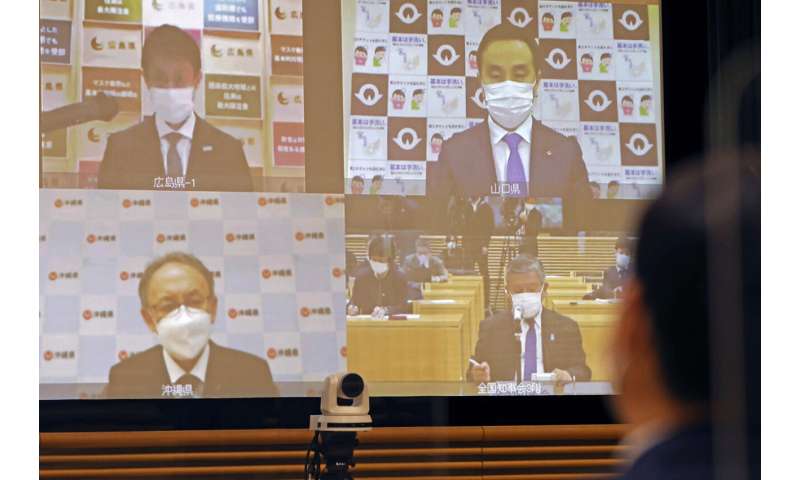
Japan approved new restrictions on Friday to curb a sharp rise in coronavirus cases in the three most affected southwestern regions of Okinawa, Yamaguchi and Hiroshima.
“Given the sudden surge in infections, the medical system runs the risk of suffering a heavy burden in the near future,” Daishiro Yamagiwa, the minister in charge of COVID-19 responses, said at a government panel meeting.
The new measures include earlier closing hours for restaurants, a ban on serving alcohol and restrictions on large-scale events. Details on these measures, which will begin Sunday and last through the end of the month, are decided at the local level and will likely vary.
Japan has undergone periods of similar restrictions over the past two years in various areas, including Tokyo. The last order for restricted activity was lifted in September.
This time, the spread of the highly contagious omicron variant appears to be first hitting prefectures that house the U.S. military.
Cases in Okinawa, home to most of the 55,000 U.S. troops in Japan, have jumped 30 times in a week. As many as 1,400 new cases were reported Friday, up from 981 the previous day, according to Okinawa government officials.
Cases are also rising in Yamaguchi, which houses Iwakuni base, and in nearby Hiroshima, at a faster rate than the rest of Japan.


Worries are growing about a possible surge in hospitalizations. Booster shots, which experts say prevent serious cases, have been given to fewer than 1% of the population, starting with medical professionals.
Most people will likely have to wait more than the six months following the second dose, the period recommended by the U.S. Centers for Disease Control and Prevention.
Year-end and New Year’s holiday travel data showed that people moved around less than during pre-pandemic times but highlighted how people are tiring of staying home. Shops, bars and streets have recently been jam-packed.
Source: Read Full Article
